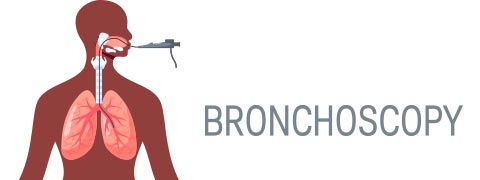
Bronchoscopy is a test to view the airways and diagnose lung disease. It may also be used during the treatment of some lung conditions./p>
If your doctor suspects you have lung disease, or needs to treat your current lung problem, you may need a test called bronchoscopy. A bronchoscope is a device that lets your doctor see the inside of your lungs. The scope, or tube, is passed through your mouth or nose, through your windpipe, then into your lungs. Your doctor may use a rigid or flexible scope. If your doctor uses a rigid scope, you will be asleep and pain free.
If you have flexible bronchoscopy, you will be awake. Your doctor will spray a numbing liquid drug in your mouth and throat. Sometimes, tiny brushes, needles, or forceps are passed through the scope. This lets your doctor take a tissue sample from your lungs. But don't worry, it won't hurt! You may have a bronchoscopy to help your doctor diagnose a lung problem. Common reasons for this test are lung growths, lymph node inspection, or other changes that your doctor needs to see. You may have this test if you are coughing up blood or have a possible foreign object in your airway. Infections in the lung and an unexplained cough that's been going on for more than 3 months are other good reasons to get this test.
Bronchoscopy can help your doctor diagnose many lung diseases, including infections from bacteria, viruses, fungi, parasites, or tuberculosis. It can also help find lung inflammation from allergic-type reactions and help diagnose lung cancer or other lung diseases. What's more, bronchoscopy can also be used to actually treat lung problems. It can help your doctor remove fluid from your airways, widen a blocked or narrow airway, drain an abscess, or treat cancer. While you have a bronchoscopy, you will lose your gag reflex because of the numbing medicine they use. But don't worry. It will return shortly after the procedure, so don't drink or eat anything until it does. However, there is a significant risk of choking if you swallow anything BEFORE the numbing medicine wears off.